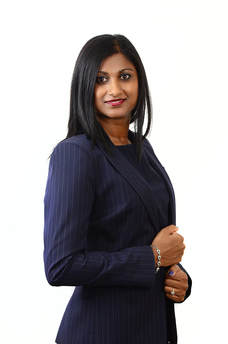 Institute of Directors in Southern Africa & The Ethics Institute Eskom’s decision to pursue disciplinary action against its suspended acting-CEO, Matshela Koko, raises important governance and ethical issues that directors and executives should consider carefully, say Parmi Natesan, Executive: Centre for Corporate Governance at the Institute of Directors in Southern Africa (IoDSA) and Professor Deon Rossouw, CEO of The Ethics Institute (TEI). “Mr Koko stands accused of influencing the awarding of lucrative contracts to a company in which his stepdaughter is a director. While we should be careful not to prejudge this specific case, conflicts of interest like this represent a major hazard for board members and executives, if they are not managed correctly from the start. All of us should see Mr Koko’s predicament as a wake-up call to make sure our own houses are in order,” says Natesan. The first point to make is that a senior executive like Mr Koko is both an employee of the company; and a deemed director or prescribed officer in terms of the Companies Act. Such a person is thus bound both by the internal policies of the company and the legal requirements of the Act. As regards the former, it would be necessary to see whether any company policies were breached in the way the contracts were awarded, and whether Mr Koko was himself involved in this process, and whether he disclosed his interest appropriately. “It needs to be made clear that claiming ignorance is not a good enough defense. As a senior executive, Mr Koko should have investigated actively the interests of any of his related parties, even to the extent of requesting them in writing to inform him if they had any interests in organisations doing business with the company,” she explains. “This would show that he took reasonably diligent steps to be informed. One should never lose sight of the fact that as a senior executive, he has to set an example to the rest of the organisation and protecting its reputation.” Natesan notes that conflicts of interest are to be expected in business, and do not necessarily constitute evidence of any impropriety: the key issue is how they are handled. King IV thus recommends that members of governing bodies should declare their financial, economic and other interests, and those of their related parties, at least annually. In the same vein, each board or board-committee meeting should be prefaced by a formal declaration of any specific conflicts of interest relating to the agenda. Professor Rossouw points to the fact that humans are naturally inclined to act in their own interests or in the interests of their immediate family and friends. While the Companies Act and governance codes like the King Reports are examples of legal and voluntary constraints to the pursuit of self-interest, they will ultimately prove ineffectual unless the individuals concerned act ethically. “I find it significant that the very first principle of the King IV Code on Corporate Governance emphasises that members of governing bodies, both individually and collectively, should act in an ethical manner. In unpacking what is meant by ethical behaviour, the Code starts by focussing on the personal integrity of members of the governing body. They are reminded that as directors, they must act in the best interest of the company, and that they must deal with conflicts of interest appropriately. King IV sees integrity as a characteristic that should be cultivated and exhibited, so that directors develop the inclination to act in the company’s best interests, not their own” he says. “By sensitising directors not only to actual conflicts of interest but also potential or perceived ones, ethics plays a crucial role in avoiding the reputational damage and financial costs when a conflict of interest is found, or even suspected not to have been handled correctly —as we see in the case of Mr Koko.” ENDS MEDIA CONTACT: Carla Coetzee, 072 112 8347, [email protected], www.atthatpoint.co.za For more information on the IoDSA please visit: Website: www.iodsa.co.za Twitter: @The_IoDSA LinkedIn: Institute of Directors in Southern African Company Page For more information on The Ethics Institute please visit:[DR1] Website: www.tei.org.za Twitter: @EthicsInst LinkedIn: The Ethics Institute Company Page
0 Comments
 Government’s undertaking to finalise a board-appointment framework for state-owned entities (SOEs) by March 2018 is warmly welcomed by the Institute of Directors in Southern Africa (IoDSA). The move is one of the key steps outlined in Government’s Inclusive Growth Action Plan, which was released by the National Treasury on 13 July 2017. The Plan is intended to kick start economic growth, end the recession and stave off further downgrades. “State-owned entities are key enablers of economic growth, particularly in South Africa, and the IoDSA has repeatedly argued that their lack of performance is linked to imperfect governance, particularly when it comes to appointing directors,” notes Parmi Natesan, Executive: Centre for Corporate Governance at the IoDSA. “We will certainly be making our specialist expertise in this area available to Government going forward, as it works to create the framework for appointing SOE board members.” Natesan says that the IoDSA has already interacted with the Department of Public Service and Administration in this regard, and has made several recommendations for its consideration. As the torchbearer for corporate governance and the convenor of the King Committee, the IoDSA will certainly hold itself ready to contribute further as Government gets down to the details of the proposed framework. The IoDSA has long argued that “board composition probably has the greatest single impact on the future success of an organisation”, to quote its recent board appraisals benchmark study. Directors need to have the requisite knowledge, skills, experience and personal qualities, and should be appointed through a formal, independent process. This is critical in any organisation, but particularly for SOEs because of their influence on the rest of the economy, and the difficulty of keeping political and economic goals separate. As the IoDSA has pointed out before, it is critical that the state as shareholder and the board understand their respective roles, and that undue political interference in the appointment of board members is avoided. Boards cannot be held accountable for the SOE’s performance if they are unable to exercise their judgement freely and in the best long-term interests of the organisation, Natesan says. Another critical factor is the need for demonstration of appropriately skilled and experienced directors. To help resolve this, the IoDSA is playing a leading role by providing training related to each of the 20 competencies identified in its Director Competency Framework. It has also introduced the professional Chartered Director (SA) designation in 2013 and more recently the Certified Director designation, in a bid to professionalise the directorship role, providing directors with a way to ensure they build the right competencies; and organisations with a way to ensure they are getting the directorial talent their boards require to function effectively. The final piece of the puzzle is regular, objective assessments of board performance. “The IoDSA is committed to improving corporate governance across South Africa. Effective corporate governance can improve organisational performance over the long term, which has socio-economic benefits for the country as a whole, but it will also contribute to reversing the perception of corruption that is swamping our public life,” Ms Natesan concludes. “While the IoDSA is a non-statutory, voluntary body and cannot act directly to penalise improper conduct, we have a key role to play in building awareness, providing training and guidelines, and influencing governance policy. We believe this element of the Inclusive Growth Plan offers a great opportunity for us to do so.” ENDS MEDIA CONTACT: Carla Coetzee, 072 112 8347, [email protected], www.atthatpoint.co.za For more information on the IoDSA please visit: Website: www.iodsa.co.za Twitter: @The_IoDSA LinkedIn: Institute of Directors in Southern African Company Page |
Archives
July 2024
Categories
All
|

 RSS Feed
RSS Feed